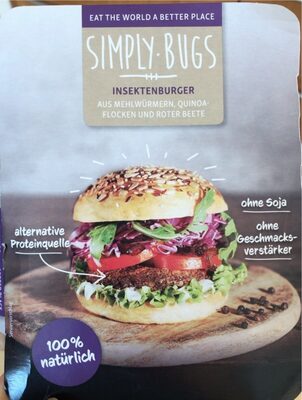
Barcode: 9005545000721
Insektenburger
DOUBTFUL
📝 Reason: The product contains ingredients derived from insects and chicken egg white powder without Halal certification, making its Halal status doubtful. Islamic dietary laws require clear Halal certification for meat and animal-derived products. The presence of doubtful ingredients necessitates further verification for Halal compliance.
📄 Certificates: None
Ingredients:
Details
Insektenburger: An Overview
The Insektenburger is an innovative product crafted partially from insects, specifically the mealworm (Tenebrio molitor), which has raised significant eyebrows in the Halal community. People globally are curious whether this modern protein source adheres to Islamic dietary laws. In this article, we will delve deep into its ingredients, specifically focusing on its Halal status while addressing each component meticulously.
Understanding Halal Status
The Insektenburger’s Halal status is classified as Doubtful. This is primarily because it contains ingredients, particularly insect-derived components and chicken egg white powder, that lack clear Halal certifications. According to Islamic dietary laws, clear Halal certification is vital, especially for meat and animal-derived substances. Consequently, the presence of these dubious ingredients raises substantial questions around its compliance.
Ingredient Breakdown
Let’s take a closer look at the ingredients of the Insektenburger to better understand their Halal status:
- Mehlwurm (Tenebrio molitor): This ingredient, being derived from insects, casts doubt on its Halal compliance. Islamic law generally prohibits the consumption of insects unless explicitly stated as permissible. Therefore, the inclusion of mealworms in this product raises significant concerns.
- Hühnereiweisspulver: The chicken egg white powder used here is another ingredient lacking proper Halal certification. The absence of a Halal label for this chicken product renders its status questionable among those adhering to strict dietary guidelines.
- Weizenmehl: Wheat flour is commonly accepted as Halal, thus not posing any concerns for consumers.
- Rapsöl: Canola oil is generally recognized as Halal and safe for consumption.
- Quinoaflocken: Quinoa flakes are acknowledged as Halal, adding a nutritious aspect to the product.
- Rote Beete: The red beet used is widely regarded as Halal, contributing natural color and flavor.
- Zwiebel: Onion is also safely categorized as Halal.
- Paniermehl: Breadcrumbs included in the recipe generally pose no Halal issues.
- Kokosflocken: Coconut flakes are permissible under Halal guidelines.
- Gewürze: Spices included in the product are considered Halal.
- Kräuter: Herbs are also deemed Halal.
- Tomatenkonzentrat: Tomato concentrate is another safe ingredient.
- Speisesalz: Table salt is universally accepted as Halal.
- natürliche Aromen: Natural flavors generally do not pose Halal concerns unless specified otherwise.
- Knoblauchpulver: Garlic powder, like the other components, fits within the Halal framework.
Conclusion: Is Insektenburger Right for You?
The investigation into the Insektenburger’s ingredients reveals a complex picture. While many components are generally accepted as Halal, the critical question remains around the mealworm and chicken egg white powder, whose certifications are lacking. Those adhering strictly to Halal dietary principles might find the product unfit for their consumption. Ultimately, the absence of official Halal certification means that consumers need to exercise caution.
As our culinary world evolves and considers alternative protein sources, the notion of Halal compliance will require ongoing dialogue and certification to ensure dietary adherence. If you’re specifically looking for products that are 100% Halal, consider researching further or opting for alternatives with clear certification.

